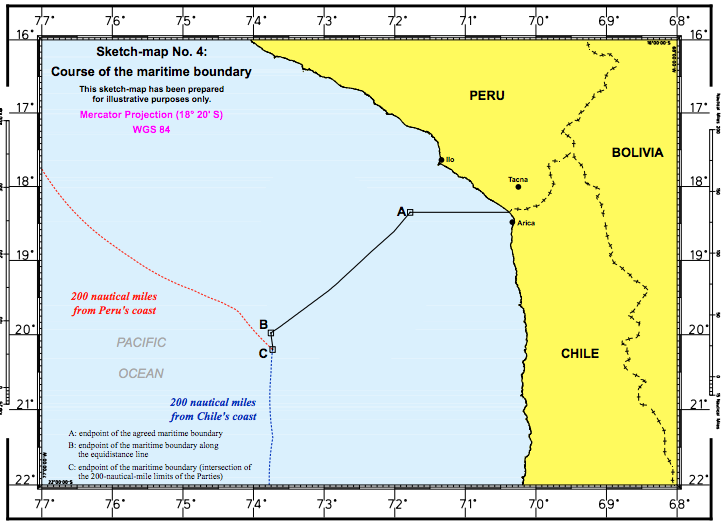
The International Court of Justice has brought an end to the international border dispute ongoing between Chile and Peru for six years. The United Nation's highest court in the Hague awarded new maritime territory to Peru, however, a key stretch of ocean encompassing some the richest fishing grounds in the area will be kept in Chilean hands. The ICJ awarded Peru around 20,000 square kilometres (7,700 square miles) and control over a further 28,000 square kilometres (10,800 square miles) of ocean.
The Peru/Chile border dispute involved some 38,000 square kilometres (14,670 square miles) of ocean. Peru contended that no legal border had been set and requested a new maritime border heading southwest, perpendicular to the the countries' land border. However, Chile cited two treaties in 1952 and 1954 which it claimed set the border as extending parallel to the equator. The ICJ found a compromise by stating that a border already existed extending 80 nautical miles from the coast and then drawing a line 200 miles southwest where the countries' waters end.
In Peru there have been wide celebrations: people gathered outside the Presidential Palace shouting "Long Live Peru!" while in the border city of Tacna, residents gathered to sing the national anthem. Meanwhile, Chilean President-elect Michelle Bachelet said she "regretted [the] painful loss." Both countries agreed they would abide by The Hague's ruling. Yet eader of the Peruvian fishermen in the region, David Patino, told The Associated Press that the decision was a loss: "We haven't won anything. We are in the same situation as the past," he said.
Indeed, the 80 mile zone that remains in Chilean hands is the key source of anchovies, which Chile depneds on to make fishmeal. Chile is the largest exporter of fishmeal in the world, followed closely by Peru. Yet many claim that the dispute was waged more over patriotic than economic interests, and as such the victory has gone Peru's way.
© 2025 Latin Times. All rights reserved. Do not reproduce without permission.




